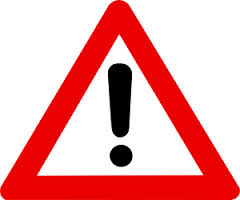
Scams are one of the fastest growing threats. The dominant intention is to steal your money. The most common ways are e-mail, web sites, and phone.
First ground rule:
Never respond to any unsolicited communication. If it is something you did not expect, treat it with suspicion.
If you get a cold call from someone saying they are from your Bank and need to help you with a problem with your account, then end the conversation quickly. Politely or otherwise at your discretion. You can call your Bank to find out if it was genuine and the odds are it will not be.
If you receive an e-mail which you do not expect, then do not respond to it. Do not click or open anything. If you are concerned that it may be something important, contact whoever they claim to be yourself. For example if it claims to be from your Bank, call your Bank and check.
Not all Web Sites are harmless. Some are what are called ‘Click Bait’. The purpose is to pump advertising at you and to try and get you to click their content, preferably purchase something. Advertisers pay money to get internet traffic to their products. Often they are genuine but occasionally not. If you open a Web Page with a mischievous advert for example, that can cause your Browser to display pop up messages persistently which at best are annoying and at worst malicious. It is important not to respond to them. At worst that will allow someone else to connect to your computer and control it.
These Browser Hijackers are not viruses themselves but the agents of mischief tempting you into clicking something. Do not click anything. Consequently ‘Anti-Virus’ systems do not always pick them up so they have to be manually removed. Find how to Reset your Browser if this happens to you.
If in doubt, don’t
If it sounds too good to be true, it probably is
Never take anything at face value. Check if uncertain.
The best protection is informed operation. Antimalware systems help reduce the risk.

Leave a Reply